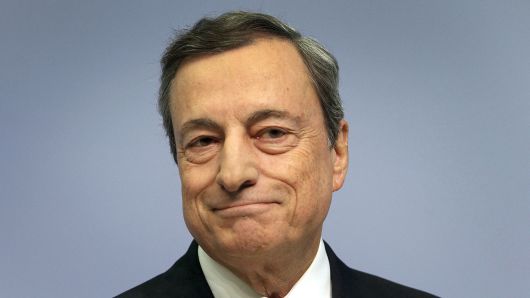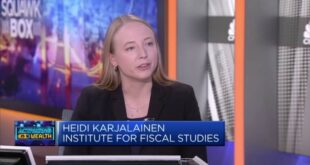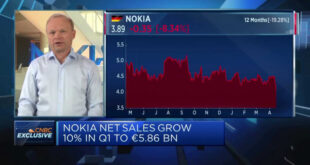
DANIEL ROLAND | AFP | Getty Images
Mario Draghi, President of the European Central Bank (ECB) arrives for a press conference following the meeting of the Governing Council in Frankfurt am Main, Germany, on September 13, 2018.
European Central Bank (ECB) President Mario Draghi said that a temporary slowdown in the euro zone does not necessarily foreshadow a serious recession.
“During the four euro area business cycle expansions since 1970, there have been 50 soft patches — defined as a two-quarter growth slowdown — and only four recessions. In fact, the euro area faced an analogous situation in 2016, when the economy also went through a soft patch triggered by a contraction in world trade. At that time, the strength of the domestic economy was able to shield the recovery from external uncertainties,” the Italian central banker told an audience Wednesday in Frankfurt.
His comments come after the central bank downgraded its growth projections for the region earlier this month. The euro area is set to grow 1.1 percent this year, down from a December forecast of 1.7 percent.
The 19-member region has been overshadowed by political developments in Italy, which entered a technical recession at the end of 2018; and in the U.K., with its departure from the EU yet to be finalized. There are also concerns about a potential slowdown in the Chinese economy, given a reliance on exports to the country, and global trade tensions in general.
“The key question is whether, with monetary policy continuing to support the expansion, domestic demand will remain as resilient today,” Draghi said Wednesday.
Amid the lower growth prospects and moribund inflation, the ECB announced further expansionary measures in early March. These included another program to stimulate bank lending in the euro area and pushing back the timing for a rate hike.
“It was clear that the loss of growth momentum could become more broad-based and persistent if two risks were to materialize: first, if external demand were to remain weak; and second, if this were to spill over into domestic demand,” Draghi said about the bank’s policy decisions.
 EU News Digest Latest News & Updates
EU News Digest Latest News & Updates


